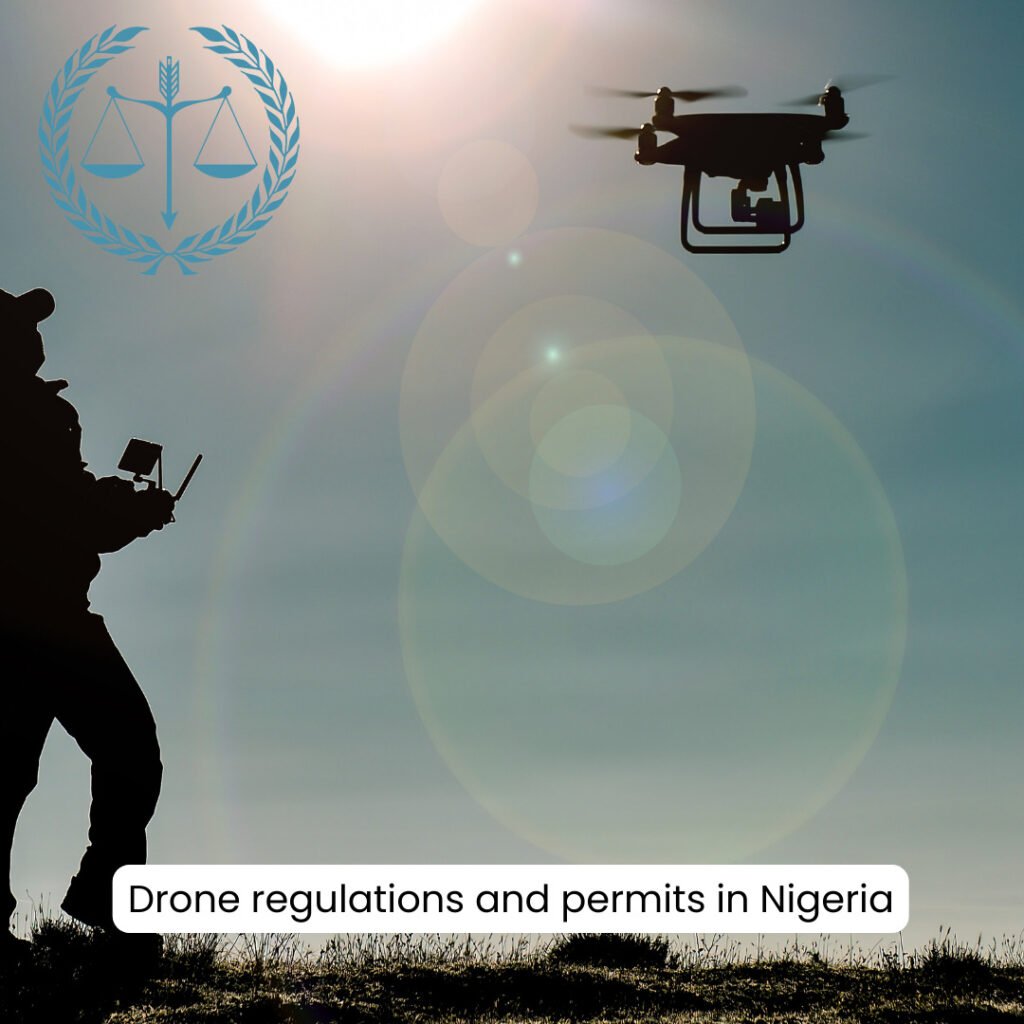Drone Regulations and Permits in Nigeria
Drones, also known as Unmanned Aerial Vehicles (UAVs), have become a ubiquitous presence in modern society, revolutionizing industries ranging from agriculture and photography to emergency response and surveillance. In Nigeria, a nation embracing technological advancements, the rapid proliferation of drones brings both opportunities and challenges that require effective regulations. As drones become more integrated into various sectors, understanding drone regulations and obtaining the necessary permits is essential to ensure safe and responsible drone operations. In this article, we delve into the realm of drone regulations and permits in Nigeria, exploring their significance, challenges, regulatory approaches, and implications for drone enthusiasts, businesses, and government agencies.

The Rise of Drones
Drones are aerial vehicles operated remotely or autonomously, often equipped with cameras and sensors. They have proven to be versatile tools with applications ranging from aerial photography and surveillance to package delivery and disaster assessment.
The Significance of Drone Regulations and Permits
Drone regulations and permits hold immense significance for several reasons:
- Safety: Regulations ensure that drone operations are conducted in a safe and controlled manner, minimizing the risk of accidents or collisions with other aircraft.
- Privacy: Regulations address concerns related to privacy and data protection, ensuring that drones do not infringe upon individuals’ rights.
- Airspace Management: Effective regulations prevent unauthorized drones from interfering with manned aircraft, enhancing overall airspace management.
- Commercial Opportunities: Clear regulations provide a framework for businesses to integrate drones into their operations, driving innovation and economic growth.
Challenges in Drone Regulations and Permits
Drone regulations and permits in Nigeria come with challenges:
- Rapid Technological Advancements: The pace of drone technology development may outpace regulatory efforts, necessitating adaptable and future-proof regulations.
- Lack of Awareness: Drone operators may lack awareness of the regulations and permit requirements, leading to unintentional violations.
- Airspace Integration: Ensuring safe integration of drones into the airspace requires coordination with aviation authorities and air traffic control.
- Data Privacy: Drones equipped with cameras and sensors may raise concerns about data privacy and surveillance.
Regulatory Approaches
Regulatory approaches to drone operations and permits can include:
- Licensing and Registration: Requiring drone operators to obtain licenses and register their drones before conducting operations.
- Flight Restrictions: Establishing no-fly zones and altitude limits to ensure drones do not interfere with manned aircraft or sensitive areas.
- Operational Guidelines: Providing guidelines for safe drone operations, including considerations for weather conditions, flight paths, and emergency procedures.
Implications and Opportunities
Drone regulations and permits have implications for drone enthusiasts, businesses, and government agencies:
- Safe Operations: Regulations ensure that drones are operated safely and responsibly, minimizing the risk of accidents and incidents.
- Commercial Innovation: Clear regulations encourage businesses to explore drone applications, fostering innovation and economic growth.
- Government Services: Drones can enhance government operations, such as disaster response, surveillance, and infrastructure inspection.
Charting the Path Forward
The future of drone regulations and permits in Nigeria holds promise:
- Awareness and Education: Educating drone operators about regulations and permit requirements is crucial to prevent unintentional violations.
- Regulatory Expertise: Building regulatory expertise through collaboration with aviation authorities, legal professionals, and industry stakeholders is essential.
- Stakeholder Engagement: Engaging with drone manufacturers, operators, and aviation experts can lead to well-informed and balanced regulations.
- Technology Integration: Embracing emerging technologies such as geofencing and remote identification can enhance drone safety and regulation.
Conclusion
Drone regulations and permits are pivotal in ensuring the responsible and safe integration of drones into Nigerian airspace. By adopting principles that balance technological innovation, safety, and regulatory oversight, Nigeria can create an environment where drones contribute to progress, efficiency, and enhanced services. As Nigeria continues its technological evolution, a proactive and adaptable approach to drone regulations and permits will contribute to a digital future that values innovation, fosters economic growth, and supports a thriving and secure technological landscape.
